




Did you know?






Did you know?
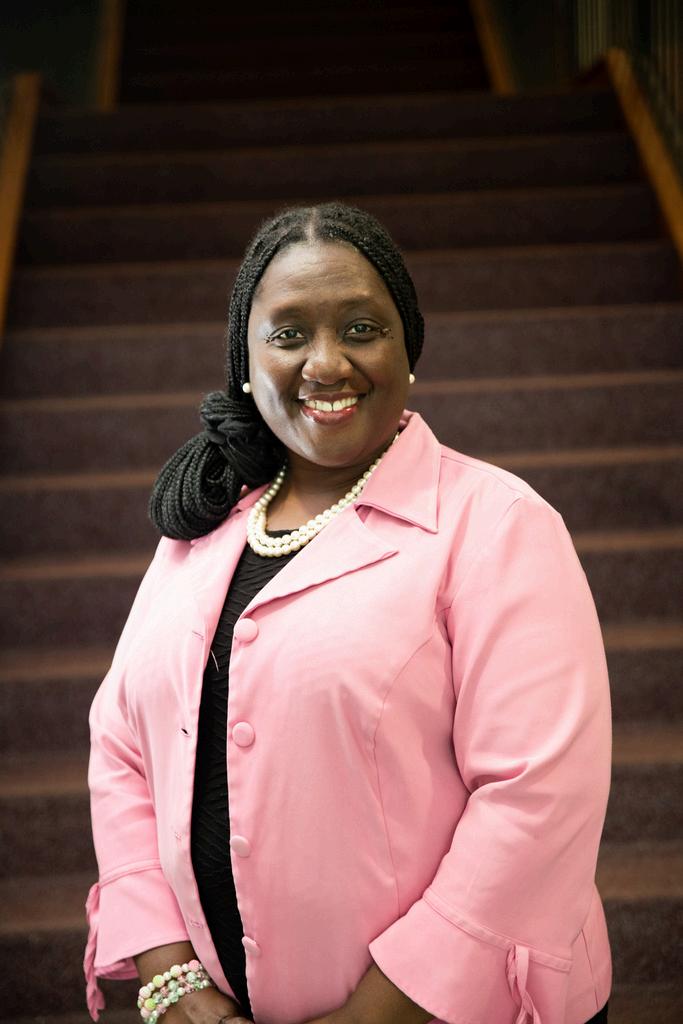
Black and American Indian/Alaskan Native birthing people experience the worst outcomes and are three and two times more likely to die compared with white birthing people, respectively. Black women in America are three times more likely to die from a pregnancy-related cause than White women, regardless of income or education level
Hispanic maternal mortality rates in the U S are rising
80% of pregnancy-related deaths in the U S are preventable
According to the Centers for Disease Control, the U S has some of the worst rates of maternal and infant health outcomes among high-income nations, despite spending an estimated $111 billion per year on maternal, prenatal, and newborn care
In this edition of Inside Equity, you will read articles about reproductive justice with one that focuses on the amazing work of reproductive justice advocate, Lindsay Griffin, LCSW. Reproductive justice means the human right to control our sexuality, our gender, our work, and our reproduction. That right can only be achieved when all women and girls have the complete economic, social, and political power and resources to make healthy decisions about our bodies, our families, and our communities in all areas of our lives.
This issue will also feature articles by Anaiya Pierce, a graduating psychology major who wrote about blood donation and Jordan Spencer, a graduate student who wrote about the Key 83 Foundation Both articles highlight two of our REC staff who are Delaware State University students I am proud of the work they are doing to advance the cause of addressing racial inequities in the state
The REC is committed to being the voice for the black and brown community in Delaware to challenge and change systemic barriers. Thank you for joining us in this effort.
Yours in the struggle,

Asua Ofosu REC Director
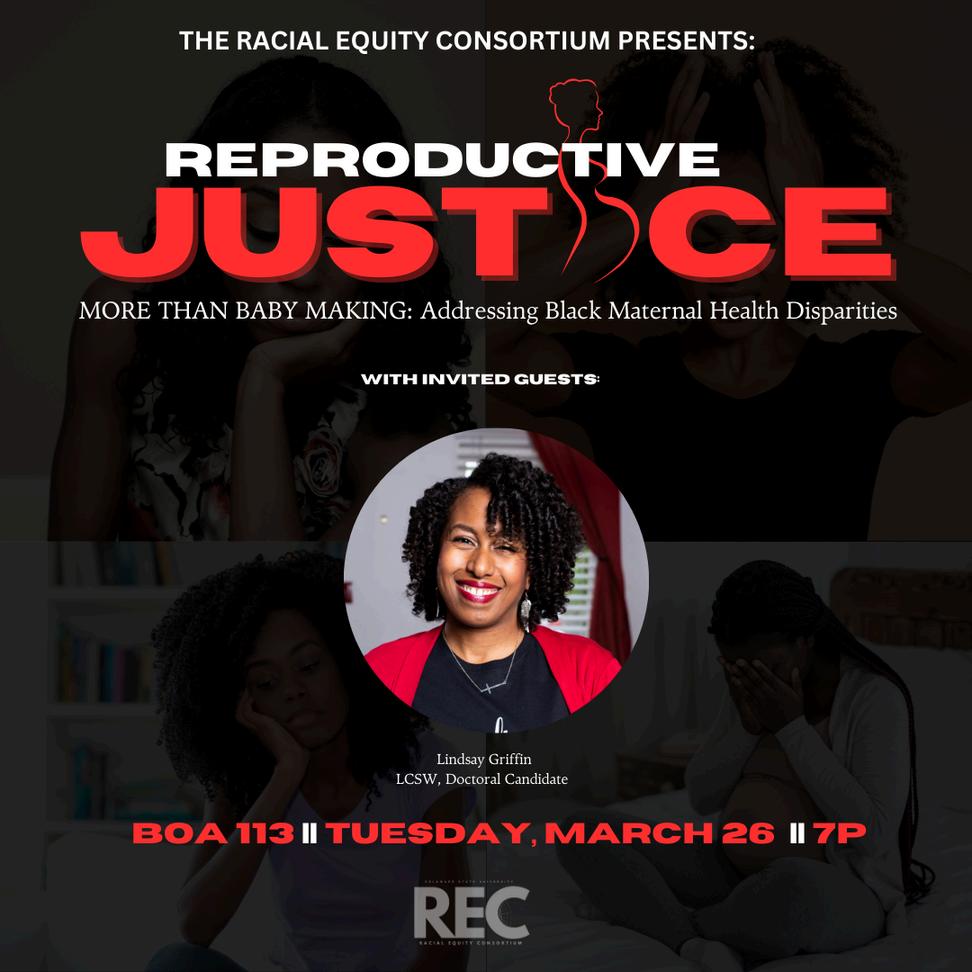


Black maternal health and reproductive justice remain critical issues in the United States, highlighting longstanding disparities in access to quality healthcare and reproductive rights. Statistics reveal a stark reality: Black women are disproportionately affected by maternal mortality rates compared to their white counterparts. Structural inequities such as limited access to healthcare services, racial bias in medical settings, and socioeconomic factors contribute to this disparity. Additionally, systemic racism intersects with reproductive justice, impacting Black women's autonomy over their bodies and reproductive choices. Addressing these issues requires comprehensive strategies that prioritize healthcare equity, dismantle systemic barriers, and center the voices and experiences of Black women in policy-making and advocacy efforts.
Reproductive justice encompasses more than just access to reproductive healthcare it encompasses the right to have children, not to have children, and to parent in safe and supportive environments. For Black women, achieving reproductive justice means confronting historical legacies of forced sterilization, discriminatory healthcare practices, and policies that disproportionately target their communities. It demands recognition of the unique challenges Black women face in navigating the healthcare system, including implicit bias, inadequate prenatal care, and limited access to culturally competent services. To advance reproductive justice, policymakers must prioritize initiatives that address these systemic barriers and empower Black women to make informed decisions about their bodies, families, and futures.
Ultimately, achieving Black maternal health and reproductive justice requires a multifaceted approach that acknowledges the intersecting factors contributing to these disparities. This includes investing in community-based healthcare initiatives, expanding access to comprehensive reproductive services, and implementing policies that dismantle systemic racism within the healthcare system. Additionally, centering the voices and leadership of Black women in policy-making processes is essential for developing effective solutions that address their unique needs and experiences. By prioritizing equity, justice, and autonomy, society can work towards a future where Black women have equal access to quality maternal healthcare and the ability to exercise full control over their reproductive lives.
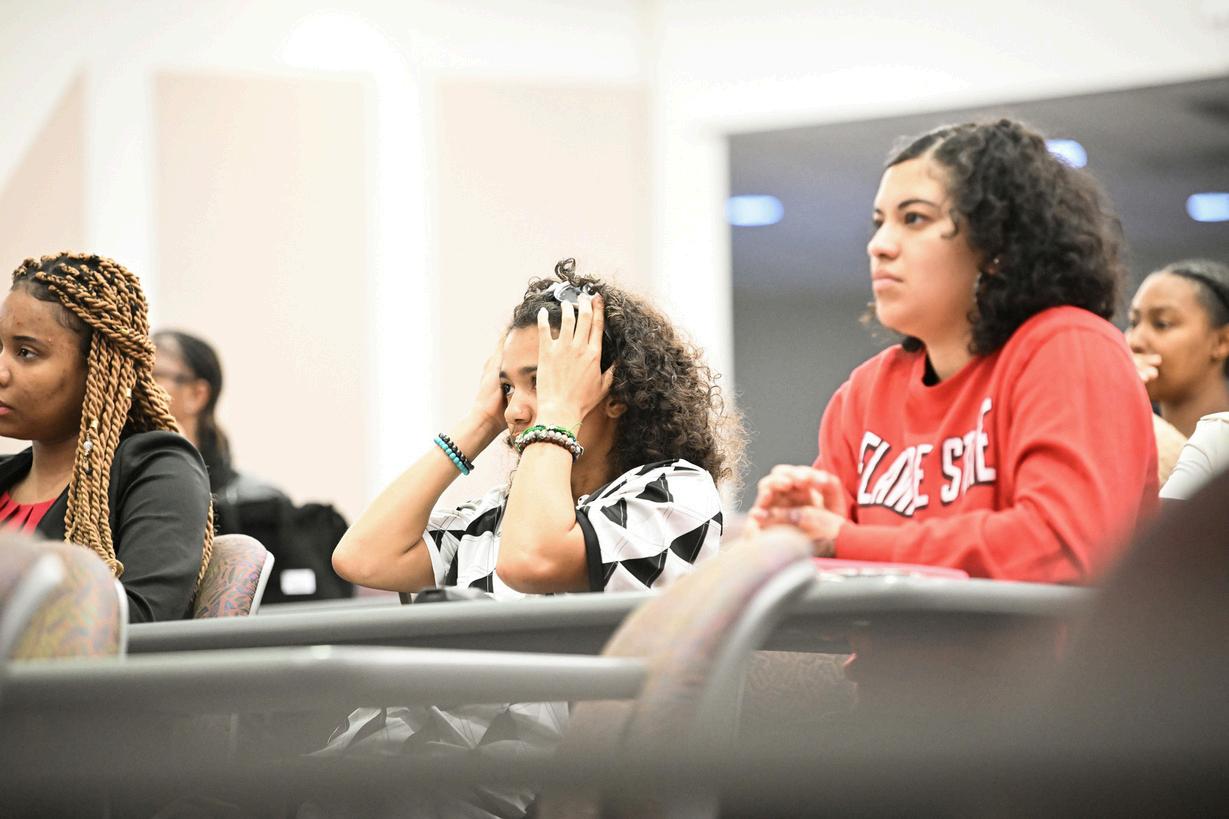
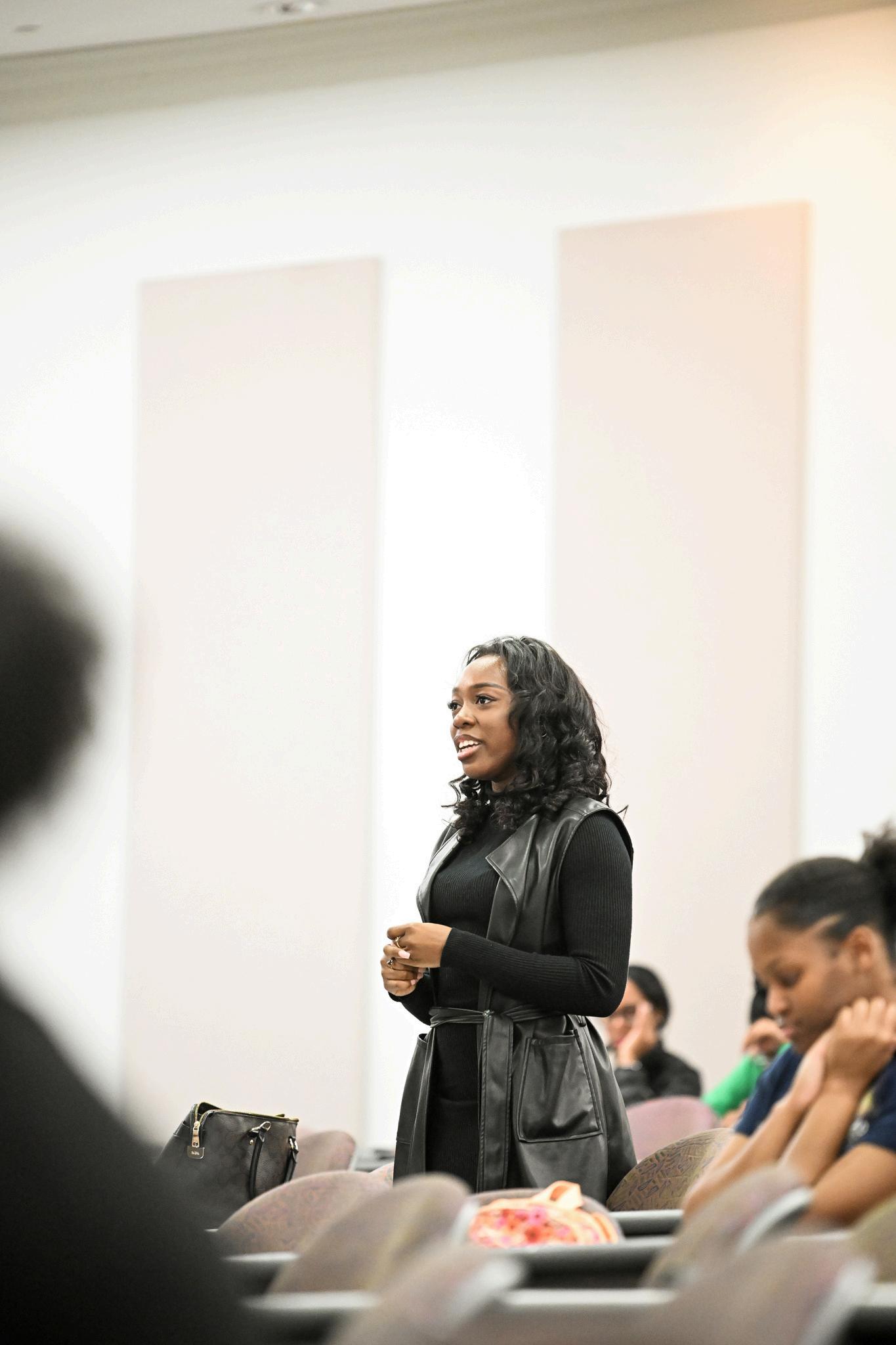
On Spotify:
Race & Health
Birthright
Eggs over Easy (available on-demand on OWN)
Below the Belt (discusses experiences of endometriosis- available on PBS)
Killing the Black Body by Dorothy Roberts
Reproductive Injustice by Dana-Ain Davis
Medical Apartheid by Harriet A. Washington
Reproductive Justice: An Introduction by Loretta Ross & Rickie Solinger
Websites
Sistersong: Women of Color Reproductive Justice Collective: www.sistersong.net
Black Girl Health Collective: www.blackgirlhealthcollective.org
The right to NOT have a child
The right TO HAVE a child
The right to parent children in safe and sustainable communities
The right to bodily autonomy
An intersectional theoretical framework
A social justice movement

Black women and Black people with the capacity for pregnancy are...
Up to TWICE as likely to have difficulties with infertility than other racial groups of birthing people
Are THREE TO FOUR times more likely to die of pregnancy and birth-related complications compared to White women and birthing people in the U.S.
Less likely to get accurate and timely diagnoses of endometriosis and PCOS--which have far-reaching consequences on quality of health, outside of reproduction
Less likely to have access to sexual and reproductive health care resources and education on sexual and reproductive health
Created by Lindsay Griffin, LCSW



“BASED ON YOUR PERSONAL EXPERIENCE, IS DSU A REAL HBCU?”
At the closing of the semester, students sat down with Consortium members to have HBCU Talk. They were asked if they believe that they attend a real HBCU. This sparked a two hour conversation discussing the culture of our university, areas for growth when coming to administration, known and unknown history of DSU, etc.
After hours of open dialogue, the group came to a mutual understanding that university students, staff, and affiliates need to do a better job at staying true to roots of this institution. While we are the quest of becoming the #1 contemporarily diverse historically black university, it is imperative that we embrace or pastthat makes us a strong black college in the first place.
From the sit ins of 1968 following the assassination of Martin Luther King Jr., to the triumphant story of how Medgar Evers dormatory building was named DSU has a lot of rich history that current students and past alumni are not aware of.
If hornets were better informed of the hstory of DSU, and large DSU’s footprint is to American History, students would have a totally different perspective, calling DSU the true #1 HBCU.
Written by Anaiya L. Pierce
On Thursday, February 1st, 2024, the Racial Equity Consortium Team had the privilege to donate blood to the Delaware Blood Bank on Delaware State University Campus. The Racial Equity Consortium understands the importance of donating blood, and we strive to help the Delaware community.
The Red Cross has declared a blood shortage that is currently happening in the United States. In 2024, the number of people who donate blood has dropped by 40% in the past 20 years. Donating blood is vital the world, and here are some across reasons why you should donate.


DONATING BLOOD IS CRUCIAL BECAUSE IT SAVES LIVES. BLOOD TRANSFUSIONS ARE USED FOR VARIOUS MEDICAL PROCEDURES, SURGERIES, AND TREATING ILLNESSES. DONATING REGULARLY ENSURES AN ADEQUATE BLOOD SUPPLY, CONTRIBUTING TO VARIOUS HEALTHCARE NEEDS.


Having a sufficient blood supply readily available is vital for emergenct situations such as natural disasters and accidents. Having a sufficient blood supply can make a difference between a life and death situation.

Blood donations are also used to further medical research. Researcher use blood donations to develop new medications and treatments Researchers also use blood samples to study new diseases.
Blood donations are also used to hel individuals with medical conditions such as hemophilia, cancer and sickle cell disease.
A compatible donor is often found in individuals with a similar ethnic background as you. Therefore, increasing blood donations in people of color ensures that patients with a similar background have access to compatible blood products, reducing the risk of transfusion reactions.
Some blood disorders such as sickle cell disease, certain types of cancer and thalassemia occur more in minority groups. blood disorders require frequent blood transfusions to live.

Having people of color donate blood can help raise awareness about the importance of donating and addressing common misconceptions. By bringing awareness to the matter, we can encourage more people of color to become regular donors.
Minorities are more at risk of heart disease. Being a frequent blood donor can reduce your blood pressure, cholesterol and keep your iron level balanced.


Written By: Jordan Spencer
On February 3rd, 2024, the Key 83 Foundation illuminated the power of community and scholarship at its 2nd Annual Fundraiser Gala held at Bally’s Casino Resort in Dover, Delaware. Founded by the Gamma Sigma Alumni of Alpha Phi Alpha Fraternity Incorporated, this 501c3 non-profit has quickly become a cornerstone of support and empowerment for Delaware scholars, embodying the spirit of giving and leadership since its inception in September 2022. Alpha Phi Alpha Fraternity, Inc. was founded December 4th, 1906, and the Gamma Sigma Chapter was founded February 7th, 1948, at Delaware State College. (Now Delaware State University.) The 36th General President of Alpha Phi Alpha Dr. Willis L. Lonzer III, served as keynote speaker for the Inaugural Gala in 2023, is a Gamma Sigma alumnus, and serves on the Foundation.
The gala, a beacon of excellence and unity, successfully raised over $17,000, contributing to the foundation's remarkable achievement of over $30,000 raised for scholarships at its inaugural event. Among the dignitaries, State Representative Sherry Dorsey Walker, a proud Alpha Kappa Alpha Sorority, Inc. member, delivered an inspiring keynote address, highlighting the significance of supporting the next generation.
Under the leadership of REC Ambassador Jordan Spencer, serving as the Gala Chairman, the event not only surpassed fundraising goals but also reinforced the crucial role of philanthropy in shaping the future of young leaders. In 2024 alone, the Key 83 Foundation has awarded over $3,000 in scholarships to four deserving Delaware State University (DSU) students, directly impacting their educational journeys and alleviating financial burdens


The Key 83 Foundation's commitment extends beyond financial support; it fosters mentorship, leadership development, and community engagement. From sponsoring DSU students to attend the Alpha Phi Alpha National Convention to providing scholarships at the Miss Black and Gold Pageant, the foundation is dedicated to enriching lives and nurturing future leaders.
The Racial Equity Consortium stands in solidarity with the Key 83 Foundation, celebrating their success and supporting their mission to empower through education and leadership. We recognize the transformative power of philanthropy in breaking down barriers and opening doors for students who dream of a brighter future. We urge our community to join us in this mission. Your support, whether through donations, volunteering, or advocacy, is invaluable.
For those interested in contributing to the cause or learning more about the Key 83 Foundation's impactful initiatives, please contact them directly at key83foundation@gmail.com.
Together, let's build a legacy of hope, education, and empowerment.
Delaware House Bill 198 is significant legislation aimed at reinstating the teaching of African American history in the state's educational curriculum. The bill underscores the importance of recognizing the contributions, struggles, and achievements of African Americans throughout history.
By reintegrating this vital aspect of American heritage into the curriculum, the legislation seeks to provide students with a more comprehensive understanding of the nation's past, promoting empathy, inclusivity, and a deeper appreciation for diversity. Advocates argue that such measures are crucial for combating systemic racism and fostering a more equitable society. However, debates surrounding the bill may involve discussions on the logistics of implementation, curriculum development, and ensuring that the teaching is accurate, inclusive, and age-appropriate. Overall, Delaware House Bill 198 represents a significant step towards promoting diversity and understanding in education.
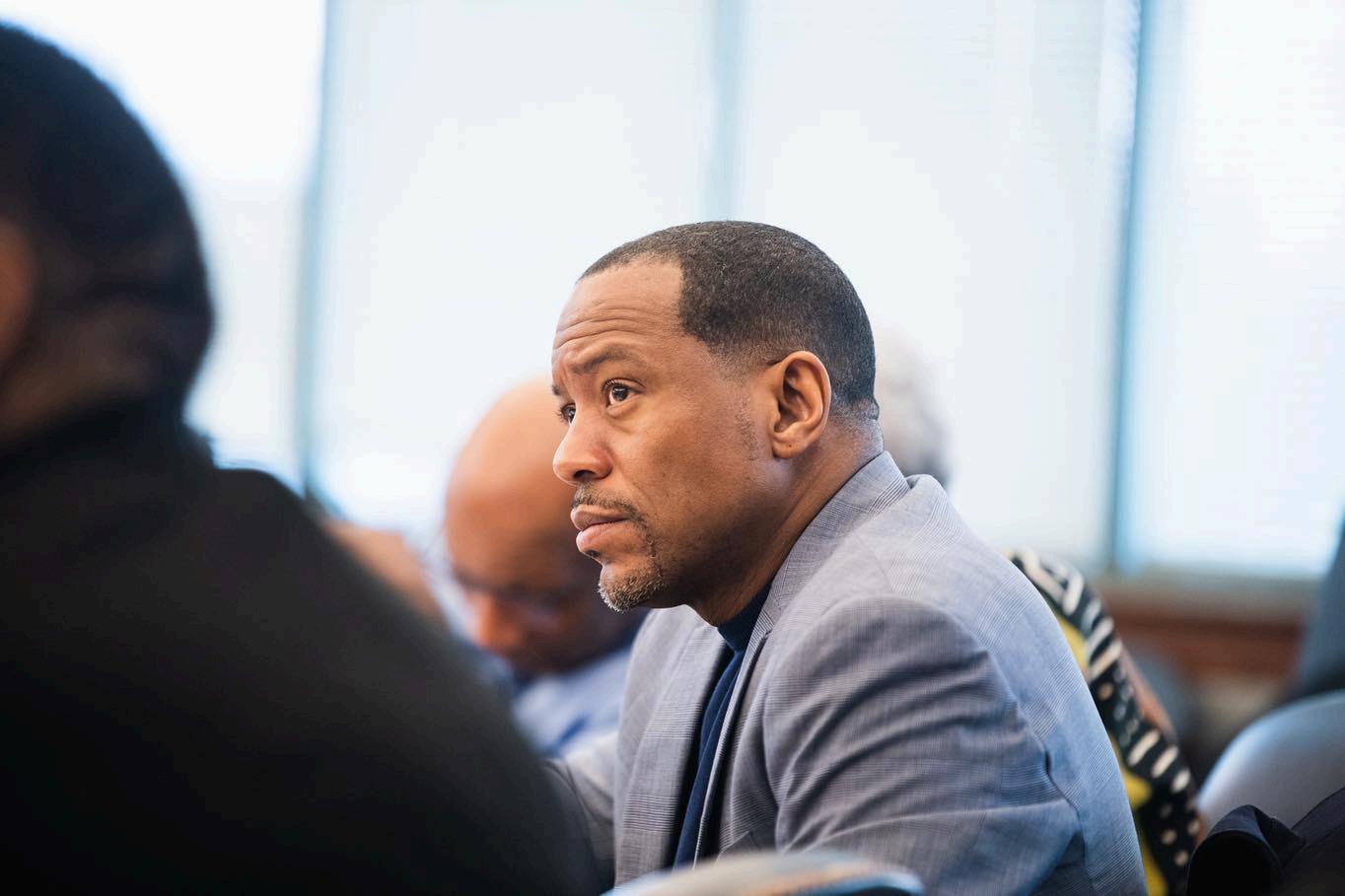

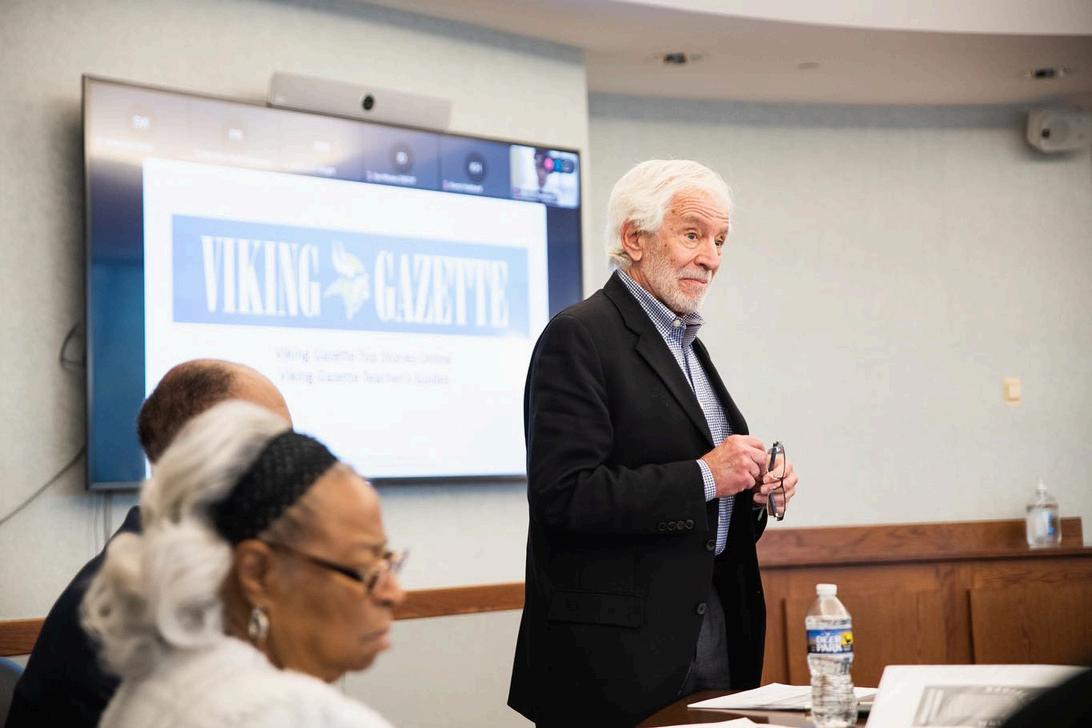










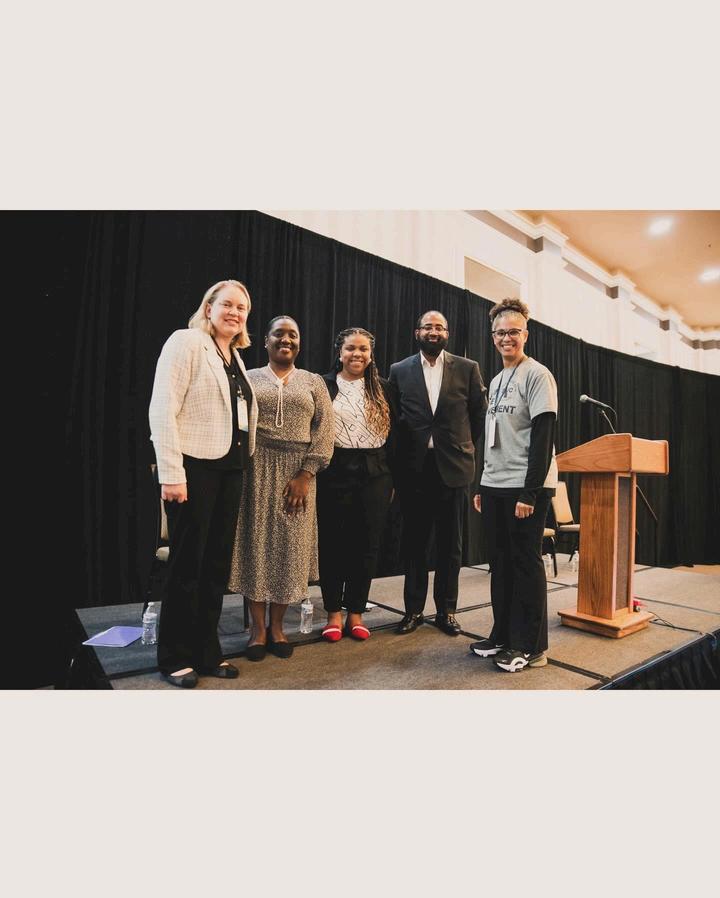

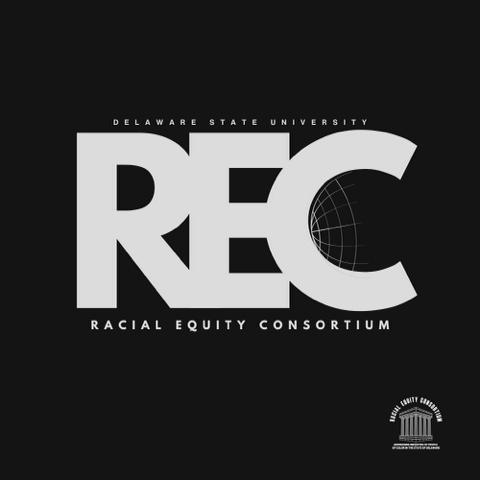
Michael Nicholls-Pierce: Contributor, Design and Marketing Editor
Asua Ofosu: Editor-In-Chief
Jordan Spencer: Contributor
Anaiya Pierce: Contributor